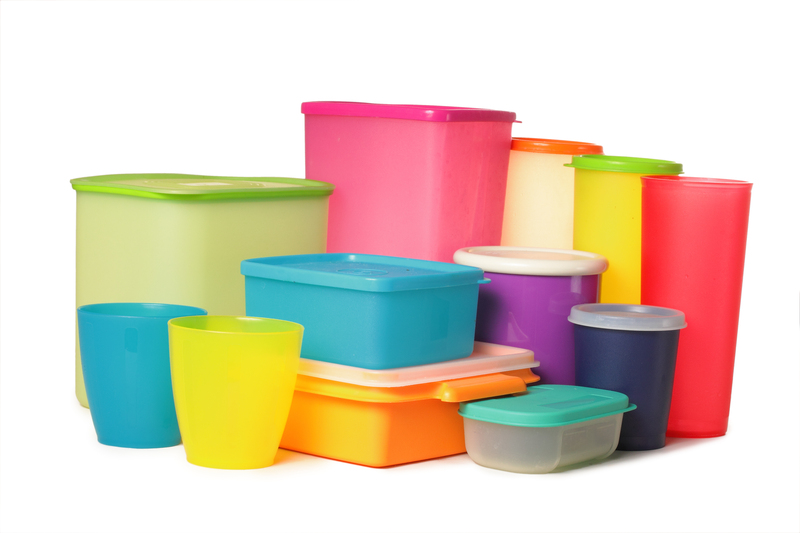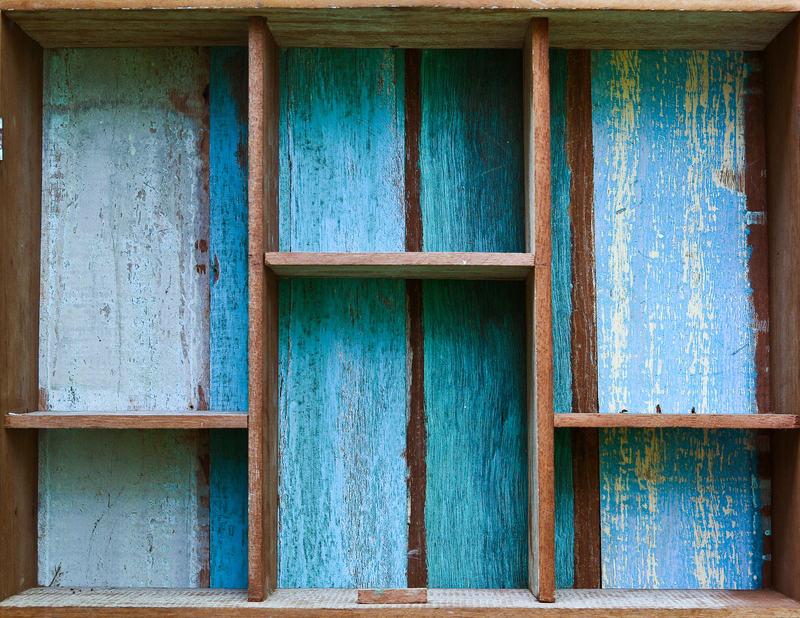Home Recycling Hacks: Efficient Ways to Reduce Waste
Are you looking to make your household more eco-friendly and sustainably savvy? Home recycling hacks are an excellent starting point on your journey to living green! Whether you're a beginner or a seasoned environmentalist, there are always new efficient ways to reduce waste at home. In this comprehensive guide, discover innovative recycling tips, clever tricks, and practical advice to transform your everyday habits--saving the planet one household at a time.
Why Embrace Efficient Home Recycling?
The world produces over two billion tons of waste every year, with a significant fraction coming from households. By applying effective recycling solutions at home, you can:
- Minimize landfill contributions
- Conserve natural resources
- Save money by reusing items
- Lower your overall carbon footprint
These strategies to reduce home waste make a lasting impact that goes far beyond your personal space, influencing communities and benefiting the planet globally.

Mastering the Basics of Home Recycling
Before you delve into clever home recycling tips, it's crucial to understand the fundamentals:
- Know your local recycling regulations
- Separate materials: paper, plastics, metals, glass, and organics
- Keep recyclables clean and dry
- Avoid recycling contamination (removing food waste and improper materials)
These building blocks are the foundation for productive home waste recycling.
Setting Up a Home Recycling Station
Create a user-friendly recycling hub in a convenient spot in your home--such as the kitchen, garage, or mudroom. Use clearly labeled bins for each material. Color-coding or pictorial signs can make sorting easier for the whole family, including kids!
Creative Home Recycling Hacks for Everyday Life
Ready to go beyond just tossing bottles into the blue bin? Here are innovative home recycling ideas for maximizing your household's impact:
1. Upcycle Household Items
- Transform glass jars into storage for pantry staples or DIY herb gardens.
- Convert tin cans into stylish pen holders, plant pots, or lanterns.
- Repurpose old T-shirts into cleaning rags or reusable grocery bags (no sewing required!).
- Create art projects with scrap paper, magazines, or packaging materials.
2. Composting: The Ultimate Waste Solution
Organic waste like fruit peels, coffee grounds, and veggie scraps make up about 30% of the average family's garbage. Instead of sending these nutrients to the landfill, try:
- Starting a backyard compost bin or pile
- Using a countertop compost pail with a charcoal filter to control odors
- Trying a worm bin (vermicomposting) for small spaces
Finished compost enriches your garden or houseplants, closing the recycling loop at home!
3. Smart Shopping to Prevent Recycling in the First Place
Recycling starts before you even bring items into your home! Try these waste-reducing shopping hacks:
- Shop in bulk to minimize packaging
- Choose products with recyclable, compostable, or reusable packaging
- Bring your own bags, jars, or containers to stores
- Avoid single-use plastics whenever possible
4. Reuse and Repurpose Packaging Materials
Get creative with cardboard boxes, bubble wrap, and packing peanuts:
- Cardboard boxes make excellent moving or storage bins
- Use shredded paper as protective packaging or animal bedding
- Turn egg cartons into seedling starters for your garden
5. E-Waste Recycling: Handle Responsibly
Old electronics like phones, laptops, and batteries pose environmental hazards if tossed in the trash. Instead:
- Drop off at designated e-waste recycling centers
- Trade in or donate working gadgets for reuse
- Check with manufacturers for mail-back recycling programs
Efficient Ways to Reduce Household Waste
True waste reduction means finding ways to eliminate trash before it's created. Check out these household waste reduction tips:
- Meal prep and planning: Reduce food waste by planning meals and using leftovers creatively.
- Switch to reusable kitchenware: Invest in beeswax wraps, glass containers, and stainless-steel straws.
- Borrow, don't buy: Use community tool libraries or peer-to-peer sharing platforms.
- Digital bills and statements: Cut down paper waste by switching to paperless billing.
- Shop secondhand: Thrift stores and online marketplaces reduce the need for new products and packaging.
Zero-Waste Kitchen Swaps
The kitchen is often the heart of household waste production. By making a few key swaps, you'll notice a substantial drop in waste:
- Cloth napkins and towels instead of disposables
- Compostable sponges or scrubbers
- Filtered water and refillable bottles instead of bottled drinks
- Silicone baking sheets to replace parchment paper
Home Recycling Cheat Sheet: What Goes Where?
Uncertainty about what's recyclable leads to "wish-cycling," which can actually hinder recycling efforts. Keep this cheat sheet handy:
- Recyclable: Clean paper, cardboard, glass bottles, aluminum cans, and some plastics (check the number in the triangle symbol!)
- Not recyclable: Plastic bags, greasy pizza boxes, ceramics, Styrofoam (unless your city allows)
- Compost: Food scraps (excluding meat and dairy), paper towels, coffee grounds
- Hazardous items: Batteries, bulbs, electronics--take them to special drop-off sites
Involve the Whole Family in Recycling
Instilling recycling habits in children builds lifelong sustainable practices. Consider:
- Hosting family recycling contests--who can find the most creative way to reuse something?
- Reading books or watching documentaries about environmental stewardship together
- Assigning recycling "chores" to foster responsibility
Advanced Home Recycling Hacks & Techniques
DIY Natural Cleaners from Food Scraps
Transform citrus peels, baking soda, and vinegar into powerful, all-natural cleaners:
- Soak orange or lemon peels in vinegar for a fragrant disinfectant spray
- Baking soda absorbs odors--sprinkle it in trash bins, fridges, or shoes
Turn Old Clothes into New Creations
Even stained or worn clothes can be reimagined:
- Make quilts, tote bags, or pet beds
- Repurpose denim for craft projects or home repairs
- Donate clothes in usable condition to thrift stores or textile recycling programs
Gardening Hacks: Recycling While You Grow
- Use eggshells as seedling pots or soil amendments
- Collect rainwater in recycled barrels for your garden
- Mulch with shredded paper or cardboard for weed prevention
Common Recycling Mistakes to Avoid
No matter how dedicated you are, simple errors can undermine your home waste reduction efforts. Beware of these pitfalls:
- Recycling dirty containers: Rinse out food and drink residue before recycling.
- Including plastic bags: These often jam recycling machines--take them to supermarkets with collection bins instead.
- Wish-cycling: Don't assume an item is recyclable; check with your local guidelines.
- Leaving lids on bottles or jars, unless your center instructs otherwise.
- Failing to flatten boxes, which saves space and energy at recycling plants.
The Benefits of Efficient Home Recycling Practices
- Reduces landfill waste and air pollution
- Conserves energy--recycling materials uses less energy than producing new ones
- Supports jobs in the recycling and green industries
- Encourages mindful consumerism and healthier home environments
- Builds community--share tips with neighbors or join local zero-waste initiatives

Frequently Asked Questions About Home Recycling Hacks
What are some unusual items I can recycle at home?
Beyond basic cans and bottles, many household items can be recycled or upcycled with a little creativity--think old toothbrushes (as cleaning tools), corks (for crafts or gardening), and cereal boxes (as desk organizers).
How can I encourage my family to recycle more?
Make recycling fun! Create charts, set achievable goals, or reward sustainable behavior. Leading by example and providing clear instructions (with bin labels or pictures) helps everyone participate.
Can I recycle plastic bags and wrappers?
Most curbside programs don't accept plastic bags, but many supermarkets have dedicated collection spots. Reuse them for pet waste or trash liners when you cannot recycle.
Conclusion: Start Small, Think Big
Adopting efficient home recycling hacks is all about making simple, sustainable swaps and finding creative ways to reduce household waste. Every reused jar, upcycled T-shirt, or properly sorted bottle brings us closer to a cleaner, greener future. Share your waste reduction journey with friends and family to magnify your impact!
By embracing these home recycling tips and efficient waste reduction strategies, you'll not only help save resources and reduce pollution, but also set an inspiring example for the next generation. Let's recycle, repurpose, and reinvent for a better tomorrow--starting right at home.